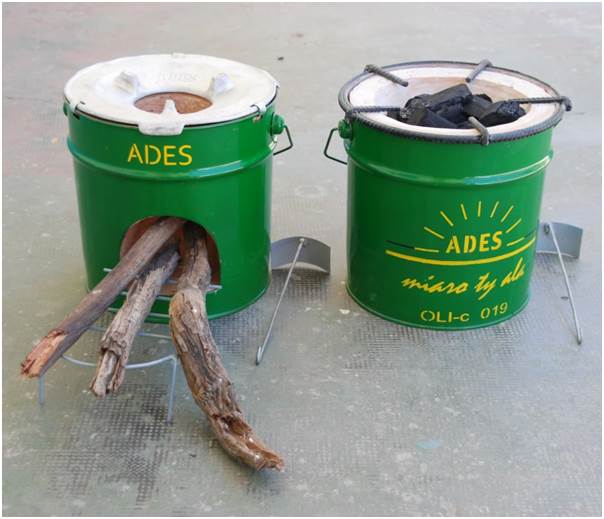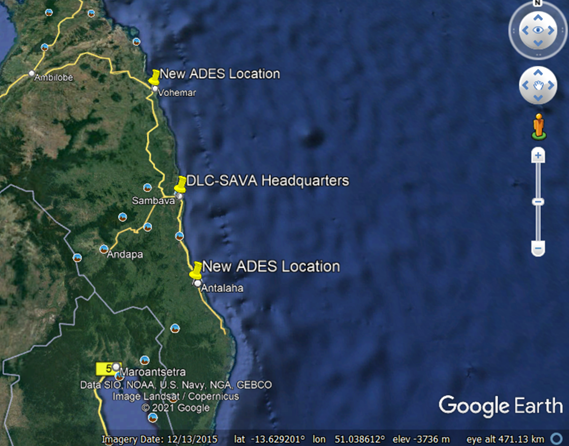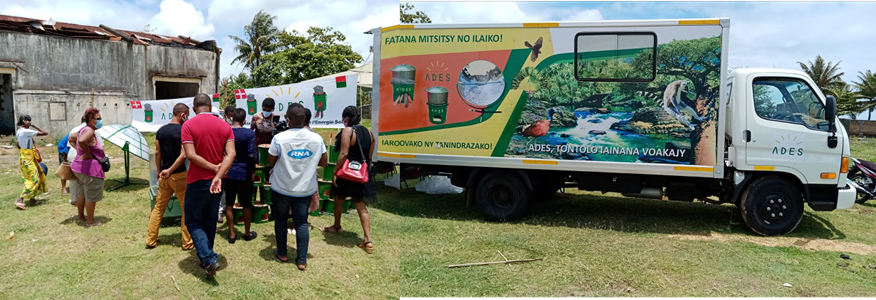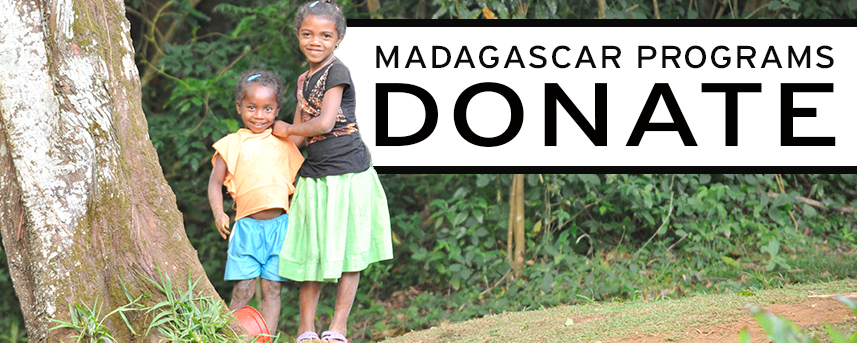James Herrera, Program Coordinator, DLC-SAVA Conservation
There has been tremendous interest in fuel-efficient cooking stoves, in Madagascar and among the Lemur Center supporter community. And for good reason: these stoves cut charcoal and firewood use by more than half, reduce household air pollution, and save on household budgets. By reducing fuel use, they help reduce the pressure on forests, where trees are extracted at an increasingly rapid pace to meet the growing demands for charcoal. The stoves also offer an opportunity to develop entrepreneurship and diversify household incomes. That’s why this year, the Lemur Center is leading a new push to expand the reach of our fuel-efficient stove program!

DLC-SAVA has provided over 2,000 stoves for families in the SAVA region.
The fuel-efficient stove project has been a part of the SAVA Conservation program since its beginning, 10 years ago. Thus far, over 2,000 households have benefited from adopting fuel-efficient stoves through Lemur Center programing. Despite the high value of the stoves, several barriers precluded us from taking the stove project to the levels we knew it should reach. First, the stoves are produced in Madagascar by the Swiss company ADES. Until recently, we had to purchase the stoves in the capital city, hundreds of miles away, and pay exorbitant amounts to truck them up, which could also take weeks. This made access difficult for us, and nearly impossible for people in the remote countryside. This year, that barrier has fallen because ADES opened two new distributors in the SAVA region. We can now easily buy the stoves in the cities and transport them to the remote countryside, where they’re needed most, at much-reduced costs. We’re so excited about this we already placed our order for 650 stoves in October!

Map of SAVA region, illustrating the central location of the DLC headquarters with the two new ADES locations.
Second, while the stoves work terrifically, adopting new technologies always takes time. People are used to cooking with traditional metal stoves, which are highly inefficient, or on open fires. Transitioning to the new stoves takes time, access, and know-how. Last year, ADES initiated a new mobile center that takes their products on the go, and skilled animators demonstrate and motivate people to adopt the new stoves. With our collaboration, the mobile center reached four countryside villages last year, and 300 households purchased stoves last year via the new mobile center. Follow-up surveys with those households, led by our university partners, revealed that more than 90% of the respondents were completely satisfied with their stoves. They reported reducing their charcoal use by half, which alleviates demand for fuel and also saved them on their household budget. We plan to host the mobile center to double their reach this year, and even expand their travel routes, this time including taking the stoves up-river by boat! Stay tuned for more.

The new ADES Mobile Center, raising awareness and demonstrating the use of the stoves during the World Lemur Day celebration, 2020.
Third, and most significantly to us, we see the value of fuel-efficient stoves as a means of diversifying household incomes. We have partnered with some of our most motivated participants in the remote countryside to re-distribute the stoves in their villages. These entrepreneurs buy the stoves from us at cost, and sell the stoves in their communities for a small profit. The price points are set in agreement among us and the communities, ensuring fair prices, and everyone benefits from the increased access to stoves. Diversifying incomes is an important step to develop resilience, buffering households during crises due to crop price volatility and economic crashes.
The ADES stoves are high quality and so rugged, they even come with a guarantee to replace the stove if it breaks. Many households report the stoves last 5+ years with no problems. By reducing the amount of carbon monoxide and particulates produced, the stoves also alleviate a significate source of pollution in the household. Because the task of cooking falls on women and young girls, this creates health disparities and women frequently have respiratory illnesses that negatively impact their productivity.
We are encouraged because the regional office of development in the SAVA region is especially focused on reducing fuelwood consumption. They are organizing a 3-day regional meeting of all actors related to the energy sector and invited the Lemur Center to participate and explain how we are contributing to this mission. This meeting will be an excellent opportunity for all actors to exchange experiences and develop a strategic action plan for creating sustainability in this important sector.
Finally, what does all this have to do with lemur conservation? Decreasing the pressure on the forest where charcoal is produced is one important factor. Charcoal production often leads to forest fires, as well. Given that households reduce their charcoal use by half, we estimate that saves about 150-300 kg (around 330-660 lbs) per year per household. If we can reach our goal of 1,000 households served, that means at least 150,000kg of charcoal saved! Further, our Malagasy partners report to us that the reason people go to the forest to exploit natural resources is that it is their only means of earning income. By diversifying incomes via entrepreneurship and reducing the costs of fuel, households see many advantages from adopting the stoves. For all these reasons, the fuel-efficient stove project has remained an important piece of the puzzle for our multidisciplinary conservation project.
We are so thankful for all who have donated to support this project, including the DLC supporter who generously offered to match donations to fund this project for a full year!


